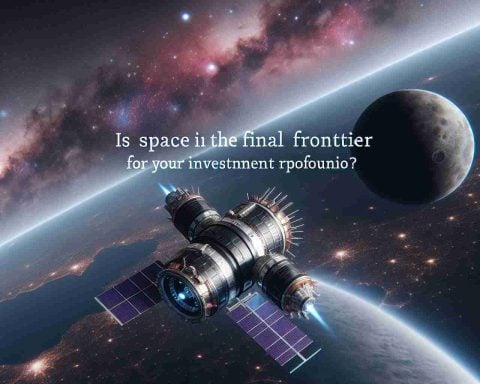- Trump’s criticism of Zelensky labels the Ukrainian leader as a “dictator without elections,” increasing tensions and influencing public discourse.
- The former U.S. president accuses Zelensky of entangling America in an unwinnable war with Russia, mirroring Moscow’s critiques of Ukraine’s martial law.
- Trump suggests Zelensky should act swiftly to avoid dire consequences for Ukraine, further straining their relationship.
- Criticism from Trump isn’t new, with past tensions tied to perceived U.S. aid benefits during Biden’s administration.
- Zelensky challenges Trump’s perspective as misleading and emphasizes Ukraine’s need for NATO and strong U.S. military ties.
- Trump’s potential discussions with Putin and the ongoing discord underscore the fragile pursuit of peace.
The strained ties between Donald Trump and Volodymyr Zelensky shattered further this week, casting shadows over hopes for peace and stirring speculation about potential outcomes. With a storm of words, Trump branded Zelensky a “dictator without elections,” igniting discussions on social platforms and beyond. The former U.S. president accused the Ukrainian leader of dragging America into an unwinnable war, fueling mounting tension.
Amidst a Miami audience, Trump suggested that Zelensky needed to “move faster” or face dire consequences for Ukraine. His remarks eerily echoed Moscow’s critiques, emphasizing Ukraine’s imposition of martial law as the war with Russia erupted.
This wasn’t Trump’s first critique. His skepticism towards Zelensky simmered for years, peaking when he linked the Ukrainian president’s actions to his adversary, Joe Biden. Trump claimed a relentless beneficiary scenario during the Biden era, alleging a “gravy train” powered by U.S. aid.
Meanwhile, Trump aides scrutinized Zelensky’s rebuttals, particularly his frustration over exclusion from pivotal discussions held in Saudi Arabia. Zelensky, denouncing Trump’s perspective as a “web of disinformation,” stood firm on his stance, highlighting perceived concessions mirroring Russian desires.
For Zelensky, speaking out seemed imperative, advocating for Ukraine’s future against narratives proposing exclusion from NATO and diminished U.S. military support. Despite previous attempts to align with Trump, the Ukrainian leader now finds himself engaged in a complex dialogue marked by diplomatic challenges.
As Trump eyes discussions with Putin, this geopolitical drama unfolds, leaving the world on edge. The unfolding discord emphasizes the precarious path to peace. Only time will reveal whether this dialogue fosters resolution or further ruptures an already tenuous relationship.
The Trump’s Accusations Against Zelensky: What It Means for Ukraine and Global Politics
How-To Deal with Political Tensions
When political tensions arise, particularly those involving international relations, it’s essential to approach the situation with a clear strategy. Here are steps that stakeholders, such as government officials and diplomats, can take:
1. Engage in Diplomatic Dialogue: Facilitate open communication channels between parties to prevent misunderstandings and promote transparency.
2. Seek Mediators: Involve neutral third-party mediators experienced in resolving international disputes to help navigate the complexities.
3. Craft Public Responses Carefully: Both parties should issue carefully worded public statements to avoid escalating tensions and maintain diplomacy.
4. Align on Common Interests: Focus discussions on common goals, such as regional stability and economic growth, to build collaborative ground.
5. Prepare Contingency Plans: Anticipate various outcomes and prepare strategic responses to ensure national interests are safeguarded.
Real-World Use Cases
The ongoing situation between Donald Trump and Volodymyr Zelensky highlights several real-world applications:
– Diplomatic Training: Enhancing the training of diplomats in crisis management and international relations can help address similar geopolitical tensions.
– Media Management: Governments can implement media strategies to control narratives and avoid misinformation during high-stakes international conflicts.
Market Forecasts & Industry Trends
In light of geopolitical tensions:
– The defense sector may see increased investment as nations fortify their military capabilities.
– Energy markets could be affected, particularly in Europe, due to the strategic importance of Ukrainian energy infrastructure.
– Political consulting firms may experience a surge in demand as governments seek expert advice to navigate complex international relationships.
Reviews & Comparisons
Comparisons have drawn between Trump’s approach toward Ukraine and previous administrations:
– Obama Administration: Focused on diplomatic solutions and economic sanctions against Russia.
– Biden Administration: Continuation of military aid and support for Ukraine joining NATO, contrasting starkly with Trump’s skepticism.
Controversies & Limitations
Several controversies surround Trump’s recent statements:
– Accusations of Misinformation: Both Trump and Zelensky accuse each other of spreading misinformation, complicating the diplomatic landscape.
– Impact on U.S.-Ukraine Relations: Trump’s statements might influence U.S. support for Ukraine, further polarizing domestic and international opinions.
Insights & Predictions
Expert opinions suggest that these tensions could either exacerbate or expedite diplomatic resolutions:
– Potential Outcomes: The tensions could lead to a reevaluation of U.S. foreign policy in Eastern Europe, affecting NATO dynamics and military support levels.
– Long-Term Implications: Ongoing conflicts might lead to permanent shifts in international alliances and strategic partnerships, with impacts on global peace efforts.
Quick Tips for Readers
– Stay Informed: Follow reputable news sources to get accurate information on international politics and geopolitical issues.
– Engage in Discussions: Participate in community discussions and forums to explore diverse viewpoints and foster understanding.
– Support Diplomacy: Advocate for peaceful resolutions and diplomatic negotiations to promote global stability and prevent conflicts.
For more on international diplomacy and geopolitical trends, visit the Reuters or BBC for reliable news coverage.




















